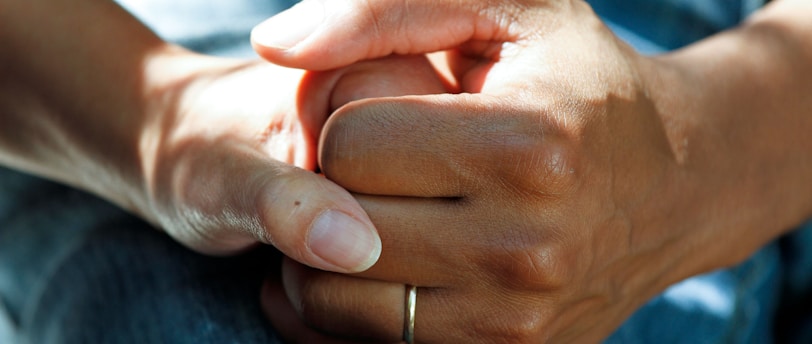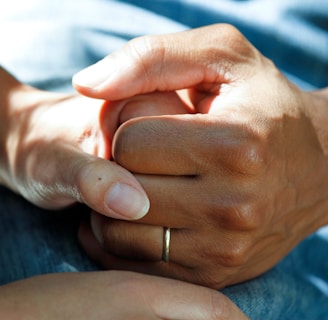The Caregiver's Toolkit: Essential Medical Products for Home Support
A Practical Rundown of Must-Have Items, From Mobility Aids to Monitoring Devices.
MY ELDERLY SOLUTIONS PLUS BLOG
Teresa Miller
5/27/20255 min read


Caring for a loved one at home can be incredibly rewarding, but it also comes with its unique challenges. Whether you're a Millennial navigating elder care for the first time, a Gen Xer juggling multiple responsibilities, or a Gen Zer stepping up for a grandparent, having the right tools makes all the difference. This isn't about transforming your home into a hospital, but rather equipping it with essential medical products for elderly care that promote safety, comfort, and independence. Think of it as building your complete caregiver's toolkit – practical, effective, and designed to ease your mind.
The world of medical products can feel overwhelming, with countless gadgets and devices vying for your attention. Our goal here is to cut through the noise and highlight the absolute must-haves for effective elderly care at home. We'll cover everything from simple aids that prevent falls to smart devices that offer peace of mind, empowering you to provide the best possible support.
Mobility Matters: Keeping Them Moving Safely
One of the biggest concerns for caregivers is preventing falls. As we age, balance can become trickier, and a simple slip can lead to serious injury. Investing in the right mobility aids is paramount for elderly care.
Walkers and Rollators: More than just a crutch, modern walkers and rollators offer stability and support. Look for lightweight models with comfortable grips and, for rollators, reliable brakes and a built-in seat for resting. They significantly reduce the risk of falls and can help maintain a loved one's independence, allowing them to move around the house or even outdoors with greater confidence.
Canes: For those who need less support than a walker, a good quality cane can be invaluable. Quad canes, with their four-pronged base, offer more stability than traditional single-point canes. Ensure it's the correct height for your loved one – the handle should reach their wrist when their arm is hanging naturally.
Transfer Benches and Shower Chairs: Bathrooms are notorious for slips. A transfer bench allows someone to slide from outside the tub to inside, reducing the need to step over the high edge. Shower chairs provide a stable, seated position for showering, preventing fatigue and falls. These are non-negotiable medical products for elderly care that prioritize safety in the bathroom.
Grab Bars: Install these in the shower, next to the toilet, and by any steps or thresholds. They provide crucial support for standing, sitting, and navigating potentially slippery areas. Make sure they are professionally installed into wall studs for maximum security.
Wheelchairs and Transport Chairs: For individuals with limited mobility, a wheelchair or a lighter transport chair (which typically requires a caregiver to push) can open up their world, allowing for outings, appointments, and easier movement within the home. Consider the weight, maneuverability, and comfort for both the user and the caregiver.
Monitoring for Peace of Mind: Smart Solutions for Home Health
Beyond physical mobility, monitoring a loved one's health is a core aspect of elderly care at home. Thankfully, technology has provided us with user-friendly medical products that offer valuable insights and alerts.
Blood Pressure Monitor: Regular blood pressure checks are crucial for managing hypertension and other cardiovascular conditions. Look for automatic cuff models that are easy to use and store readings, allowing you to track trends and share data with healthcare providers.
Pulse Oximeter: This small device clips onto a finger and quickly measures oxygen saturation levels and pulse rate. It's particularly useful for individuals with respiratory conditions like COPD or for monitoring general well-being, especially during illness.
Digital Thermometer: A reliable thermometer is a basic but essential item. Choose a digital model that provides quick and accurate readings, whether it's an oral, temporal, or ear thermometer.
Medication Organizers and Dispensers: Medication management can be complex, especially with multiple prescriptions. Weekly pill organizers with separate compartments for each day and time help prevent missed or double doses. Automated medication dispensers that send reminders or even dispense pills at set times can be lifesavers for both caregivers and care recipients.
Wearable Medical Alert Devices: For those living alone or spending periods unsupervised, a medical alert system provides invaluable peace of mind. These devices, often worn as a pendant or bracelet, allow the user to press a button in an emergency to connect with a monitoring center or designated contacts. Some even have fall detection capabilities. This is a top-tier medical product for safety and independence.
Remote Monitoring Systems (Optional, but useful): For tech-savvy caregivers, discreet motion sensors, bed occupancy sensors, or even smart cameras (used ethically and with consent) can provide a general overview of activity and alert you to unusual patterns, enhancing safety without being intrusive.
Comfort and Daily Living Aids: Enhancing Quality of Life
It's not just about safety and health; comfort and maintaining dignity are equally important in elderly care. These medical products make daily routines easier and more comfortable.
Raised Toilet Seats and Commode Chairs: These make using the toilet much safer and easier for individuals with mobility issues or those recovering from surgery. A commode chair can also be used bedside for convenience.
Reachers/Grabbers: For items that are just out of reach, a long-handled grabber can prevent bending, stretching, or falling, allowing your loved one to retrieve objects independently.
Comfortable Seating and Cushions: Pressure sores are a risk for those who spend a lot of time sitting or lying down. Invest in pressure-relieving cushions for chairs and wheelchairs, and ensure their primary seating is comfortable and supportive.
Adaptive Eating Utensils: For individuals with arthritis or tremors, specially designed utensils with larger, easy-to-grip handles or weighted designs can make mealtime less challenging and more enjoyable.
Non-Slip Mats: Beyond the bathroom, place non-slip mats under rugs and in high-traffic areas to prevent tripping hazards.
Building Your Toolkit: A Proactive Approach
Building your caregiver's toolkit is an ongoing process. Start with the essentials, and then gradually add items as specific needs arise. Remember to consult with healthcare professionals for personalized recommendations and to ensure the medical products you choose are appropriate for your loved one's specific health conditions.
The goal of elderly care at home is to create a safe, comfortable, and supportive environment where your loved one can thrive. With the right medical products, you’ll not only enhance their quality of life but also reduce your own stress and workload. Being prepared means you can focus more on the invaluable connection you share, and less on potential hazards.
[AI Disclosure: This blog post was generated with the assistance of an AI model to help create comprehensive and helpful content.]
[California Proposition 65 Warning: Some products mentioned in this blog post may contain chemicals known to the State of California to cause cancer and birth defects or other reproductive harm. Please refer to individual product labeling for specific warnings and information.]
For information related to this blog, leave a message at My Elderly Solutions Plus:
Image courtesy of AI
"Disclosure: This site uses affiliate links. We may earn a small commission from
qualifying purchases made through these links, at no extra cost to you."